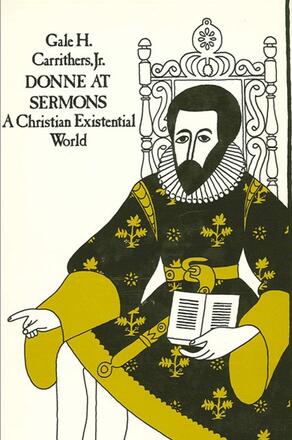
Donne at Sermons
A Christian Existential World
Alternative formats available from:
Description
In Donne at Sermons, Gale Carrithers uncovers the theocentric existentialism that underlies the content and structure of the great poet-preacher's sermons. After considering Donne's grand strategies within the generic form of the sermon, the author gives detailed expositions of four individual sermons, moving freely from Donne's ontology to his nimble metaphor.
Initially, this study defines the genre of sermon and considers how to evaluate its literary or artistic success. The author places the sermon in its actual setting, both in a physical church and in church liturgy. Here Carrithers makes use of present-day ideas concerning sound in space, concepts which he also utilizes when he anatomizes the role and purpose of the preacher. The author stresses how Donne could give great immediacy to his discourse through his actual participation as preacher—not only as speaker of the sermon, but as a character in its substance as well. Still viewing the sermons as one homogeneous body, Carrithers examines the assumptions that animate them. Once he has shown that religion can be defined as existential, the author points out how Donne's ontology fits such an existential pattern and how this limited form of relativism permeates the sermons from their structural framework down to the individual metaphoric formulations.
When he turns to consider individual sermons, the author demonstrates this thesis most convincingly. In conclusion he notes that many of the admirable qualities which characterize Donne's other works are present in his sermonic discourse, but that these are augmented by the sermon's liturgical significance and the special interaction that takes place between the speaking minister and the listening congregation.
The four sermons discussed follow the author's analysis to provide the reader with texts.
Gale H. Carrithers, Jr. , is Professor of English at the State University of New York at Buffalo.